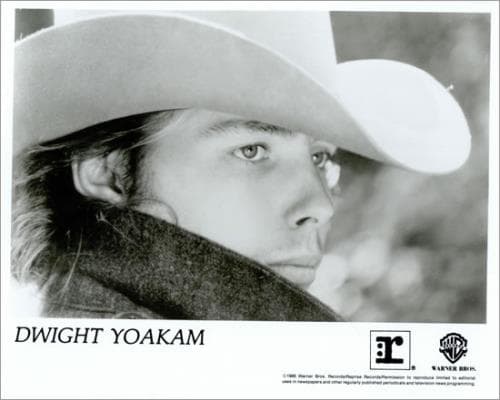
The Unpaid Rent of a Heart: A Poignant Tale of Lingering Love
There are some songs that just get right to the marrow of a difficult truth, aren’t there? And for those of us who appreciate country music that doesn’t shy away from the hard edges of emotion, Dwight Yoakam’s “The Heart That You Own” is a masterful example. This isn’t a cheerful tune, nor is it overtly dramatic. Instead, it’s a beautifully crafted lament about the lingering, often painful, attachment to a love that has clearly run its course. Released in April 1992 as the fifth single from his critically acclaimed album If There Was a Way, “The Heart That You Own” found a strong connection with audiences. It peaked at an admirable No. 18 on the Billboard Hot Country Songs chart in the United States and reached No. 13 on the Canada Country Tracks chart, proving that its melancholic message resonated widely. The album If There Was a Way itself was a significant success, showcasing Yoakam’s continued evolution while staying true to his Bakersfield sound roots.
The genius of “The Heart That You Own” lies in its clever, extended metaphor, penned solely by Dwight Yoakam himself. The song’s narrative centers around the narrator still “paying rent” on his own heart, which is now metaphorically owned by a past lover. It’s a brilliant conceptualization of emotional tenancy, where the departed lover still holds the deed to his feelings, even though they are no longer together. He describes his heart as a “run-down place” with “no view, but lots of space,” a poignant image of a once-vibrant emotional dwelling now stripped bare, yet still occupied by the memory of someone else. It’s not a direct, angry accusation, but a weary, almost resigned acceptance of this ongoing emotional toll.
The true meaning of “The Heart That You Own” speaks to the lingering hold a past love can have, even when logic dictates it should be over. It’s about the emotional real estate someone occupies in your soul long after they’ve physically left. The lyrics, “Used to be I could love here for free / Way back before you bought the property / Now I pay daily on what once was mine / Lord I probably owe you for these tears that I cry,” are particularly gut-wrenching. They perfectly capture the feeling of being trapped in a past affection, constantly reminded of what was, and paying an emotional price for a connection that no longer serves you. For older listeners, who have likely experienced the lingering echoes of a significant past relationship, this song can evoke a powerful sense of recognition and shared understanding. It’s a testament to how love, even when broken, can leave an indelible mark.
Dwight Yoakam’s delivery on “The Heart That You Own” is, as always, utterly captivating. His voice, with that distinctive honky-tonk twang and a certain world-weary ache, lends immense authenticity to the lyrics. There’s a subtle tremor in his vocals that conveys the vulnerability and quiet pain of the narrator without resorting to over-the-top dramatics. His phrasing is impeccable, drawing out the melancholic beauty of each line. The instrumentation, too, is a masterclass in understated country music – a steady, driving beat, a mournful steel guitar, and a clean, sharp electric guitar line that perfectly complements Yoakam’s voice. It’s the kind of arrangement that allows the story and the emotion to shine through, rather than overshadowing them.
“The Heart That You Own” stands as a prime example of Dwight Yoakam’s unparalleled ability to craft songs that are both intellectually sharp and deeply emotional. It’s not just a collection of clever metaphors; it’s a raw, honest portrayal of a universal human experience. For those of us who have followed Yoakam’s career, it’s another shining gem in his discography, showcasing his unique blend of traditional country sensibilities with a fresh, insightful lyrical approach. It continues to resonate because it speaks to a very real kind of heartache: the one where you know you should move on, but a part of you is still paying rent on “the heart that you own,” forever bound by the echoes of a love that once was.